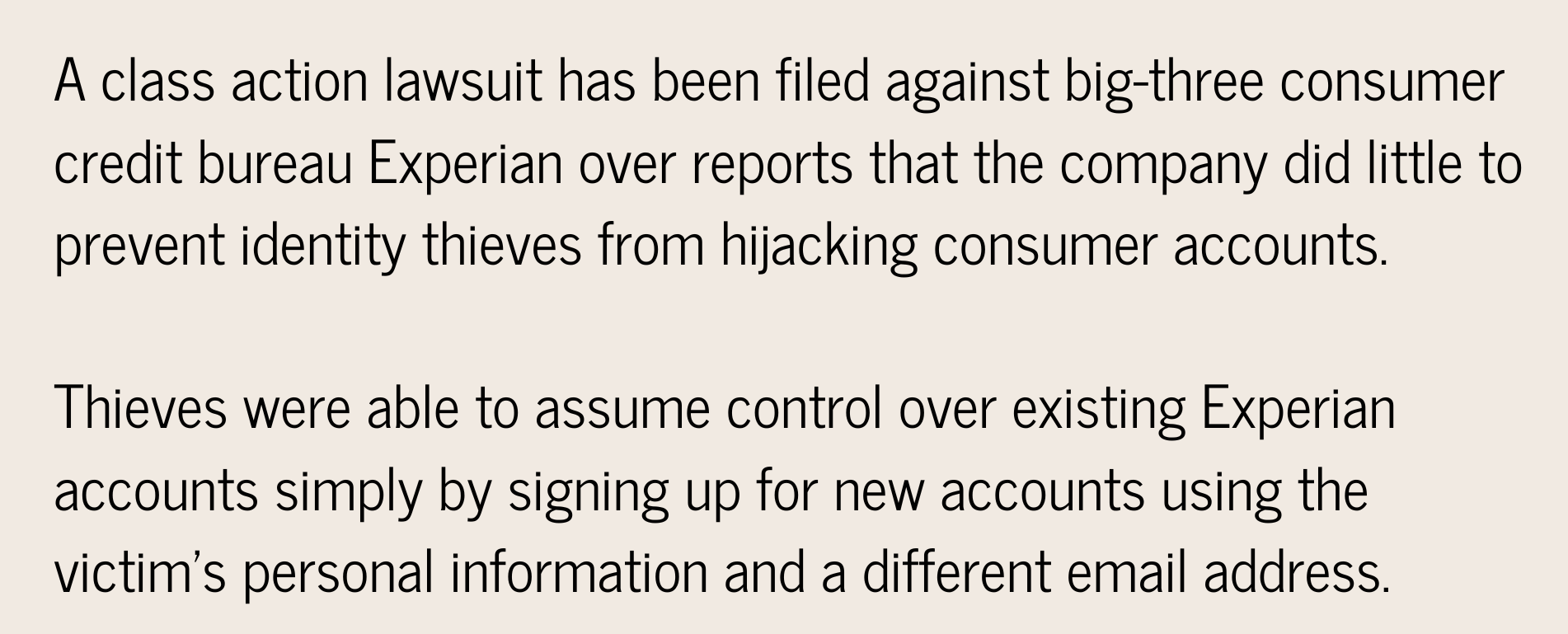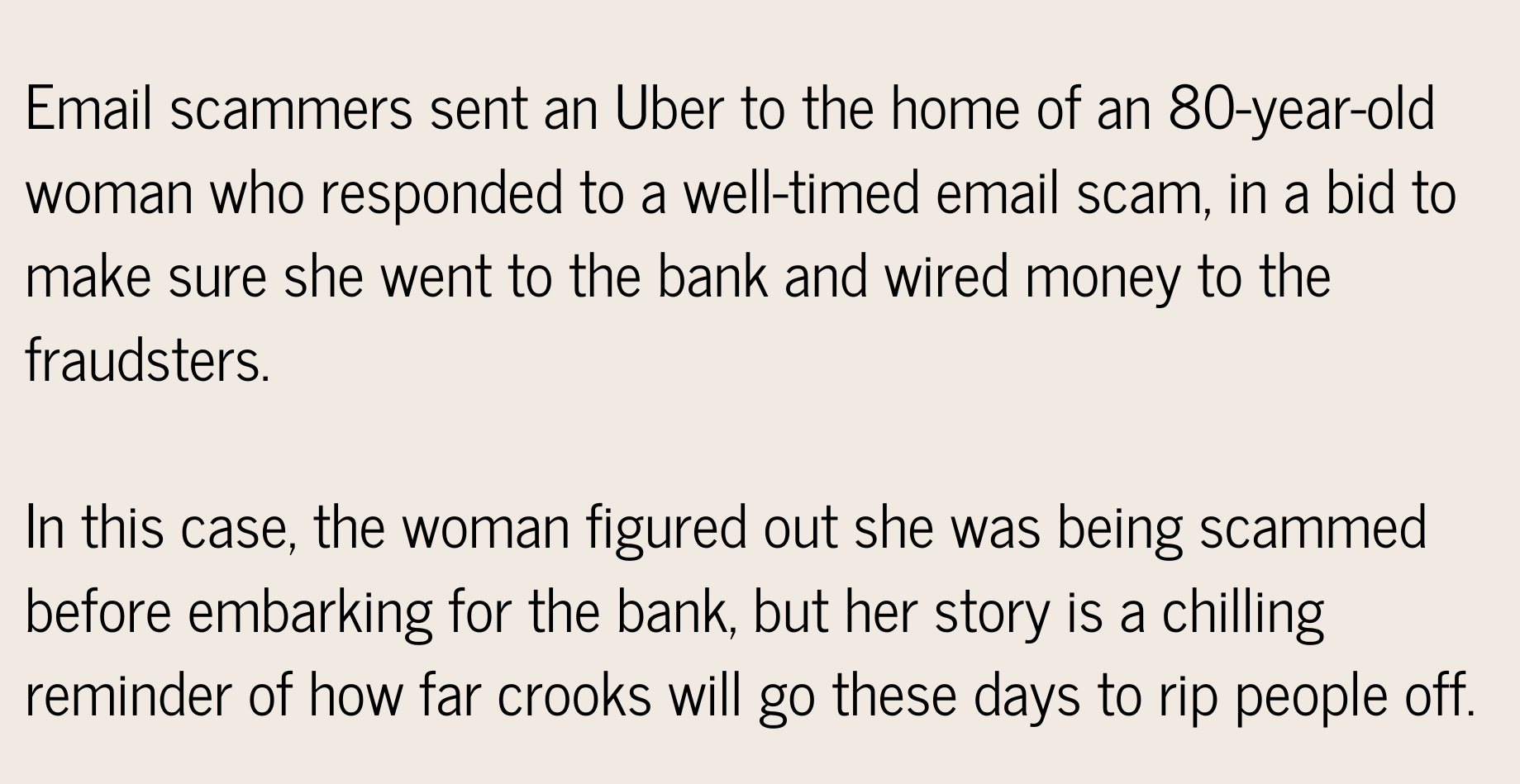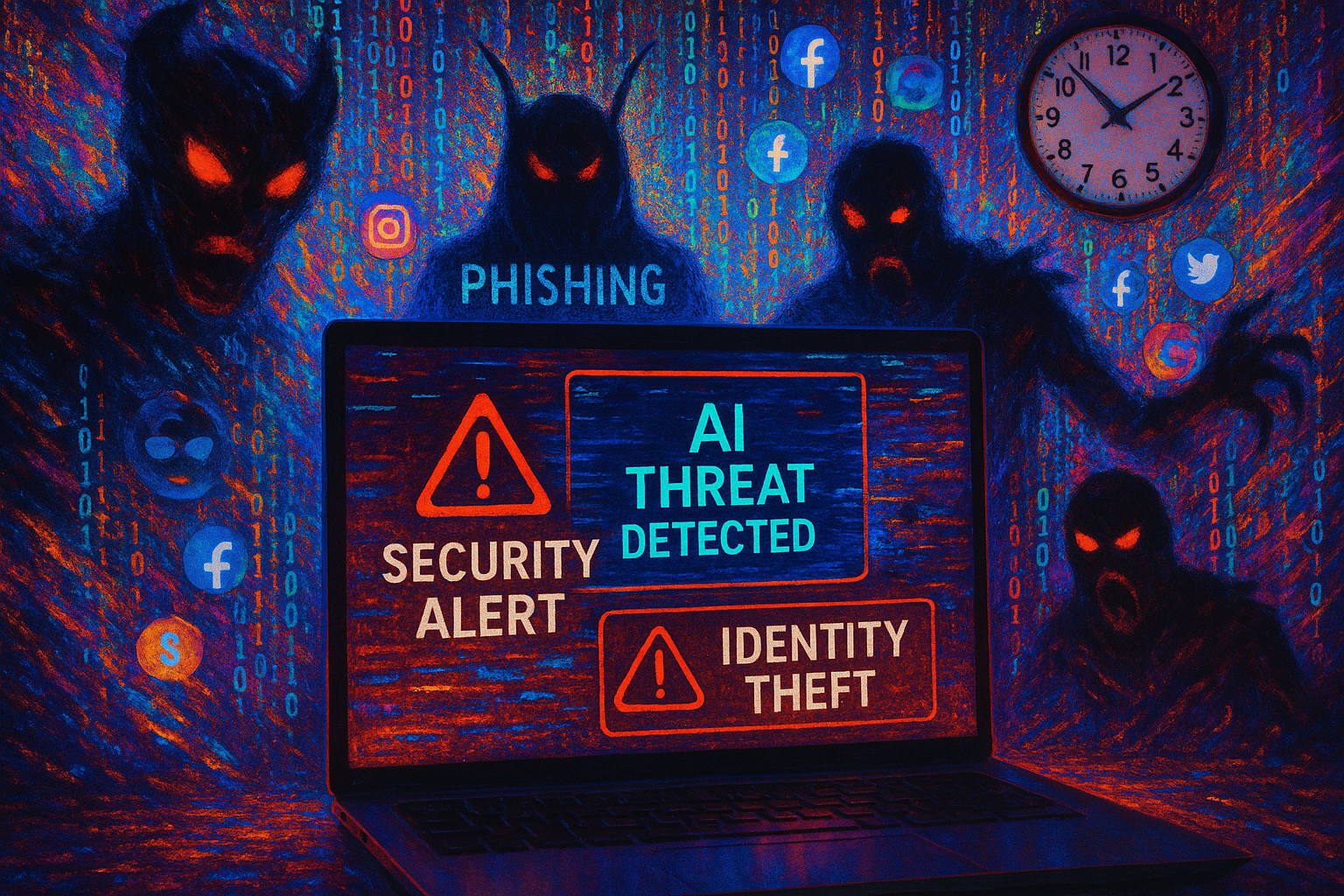5 min read
Meeting the New, AI-Enabled Face of Risk
When we introduced our OmniNet Bridge solution in 2014—known to many of you as My Digital Shield—it represented the next generation of network...

Cybercrime and online fraud continue to victimize the unaware and unprepared. In July, we saw various cases, the most severe being a $200,000 loss to hackers.
In one case, the victim thought she was emailing her son about helping with his business. She didn't notice the sender's address had an extra "l" in it. Money was wired and probably lost for good.

In most of our cases, the victims are intelligent, experienced users of internet technology. They're successful professionals, parents, and retirees engaged with life and informed by current events worldwide.
Month in and month out, TDS works with people like these. We see patterns and gain insights from years of direct observation and involvement. After 10's thousands of hours working in the field, here is what we know:
✓ In cyber, individual survival and success are at stake and will increasingly demand greater understanding and adaptability to the digital world.
I spoke to a new client in July when he said something striking. He's a medical doctor and CEO of a public health-sciences corporation. Like most of our clients, he's really smart and experienced.
We talked about how people procrastinate and fail to take action when the risk/reward imbalance is so apparent. I was thinking about our cases with some family members dragging their feet when onboarding our security services when he said confidently, "People rarely change until their pain threshold is exceeded." Yep, the doctor got it right.
It will probably always be that most of our new clients come to us after they've been hacked. Like the good doctor says, pain is the ultimate motivator.
When victims get to us, they're shocked, scared, and traumatized. They are flat-footed and disoriented, and seeing it compels me to re-double my efforts to communicate and share solutions with our clients and readers.
✓ If you would like a cybersecurity assessment and consultation, please contact us.
Protective solutions lay the foundation for cybersecurity. Above the foundation are layers related to the "user," the human at the device. Using best-in-class protection is easy. Not so much getting the human to adjust and adapt.
We have found something notable regarding getting humans to adapt to the new realities of risk in life. Combining best-in-class cybersecurity solutions with a personal human touch for personal onboarding, service, and support creates a powerful combination.
We think of support and service as "coaching." Every problem is an opportunity to help and learn. The approach is an engine that gathers experiential knowledge and practical insights to benefit the community of clients.
The hybrid experience of protective solutions and "coaching" includes a fast ramp in vital critical-thinking skills. Their digital security and privacy state are optimized, and the results provide a lifetime of value. At TDS, we call it "Cybersecurity for Life," and it's the essence of what we do.
✓ Need help? Have questions? Want a guided session with a personal "computer coach?" Contact us.
The credit agency and reporting business in the U.S. is broken. The industry invests more in milking and mining consumers than responsibly providing accurate information. Motives are maligned with the consumers' best interest, and industry practices include deception and diversion as a growth model.
Last week on August 5th, cyber-guru and gumshoe Krebs said this:
 Read more from Krebs about Experian's practices and what to do here:
Read more from Krebs about Experian's practices and what to do here:
https://krebsonsecurity.com/2022/08/class-action-targets-experian-over-account-security/
And here,
https://krebsonsecurity.com/2022/07/experian-you-have-some-explaining-to-do/
✓ Log in to each credit agency to establish a good password and 2-factor authentication. You never want to experience a hack on your credit agency file. Contact us if you want to work with a professional ID theft avoidance and management professional.
The email will look perfectly legit. It's PayPal informing you of an expense hitting your account. You log into your PayPal account, and there is the expense, just like in the email.
It's a scam. Please don't touch it, and whatever you do, don't call the number you think is PayPal. Instead, open a browser and log in to your PayPal account. Then, deal with the issue by deleting the expense and moving on.
✓ Need a security check of your computer and phone? Want to be sure your browsers are optimized for privacy and security? Need help with a password manager and getting started? Contact us to schedule a guided session with a computer coach.
Here's an awful story from July, again by cyber-guru Krebs:

https://krebsonsecurity.com/2022/08/scammers-sent-uber-to-take-elderly-lady-to-the-bank/
Many of our clients are seniors, and we help them avoid the risk of cybercrime and online fraud by protecting and coaching them simultaneously.
✓ Contact us if you are concerned about your parents or grandparents. It can relieve a lot of stress for them and you.
A Roomba is a data collection machine that sweeps up your personal information everywhere it goes. It's a robot-spy dressed like a vacuum cleaner, and for $1.7 billion, it now belongs to Amazon.
Our advice for those shopping for vacuum cleaners is to ponder the notion of "digital autonomy." Try not to aggregate too much of anything regarding your interaction with Big Tech. None can be trusted, but you can use your agency by making deliberate choices as a consumer and balancing things to fit your needs.
Thanks for reading,
Brad Deflin
Our approach is about learning new life skills for increased satisfaction, privacy, and security with personal technology.
"Data that personally identifies you can pop up on Google and other sites, but with some basic steps and a little persistence, you can hide or remove a lot of it."
The Wall Street Journal, July 23rd
"A threat actor operating with interests aligned with North Korea has been deploying a malicious extension on Chromium-based web browsers capable of stealing email content from Gmail and AOL."
"Cyber security isn't a tech issue — it's a parenting priority, say experts."
"Smart homes offer convenience and security risks. Here's what you can do to stop hackers from taking control of your smart speaker, thermostat, doorbell, and other connected devices."
"Social networks, smartphone apps and other tools can help you reach companies with your pressing concerns—without your having to listen to an hour of smooth jazz."
The Wall Street Journal, July 16th
"Battery not holding a charge? Wi-Fi woes? We break down ways to solve almost any issue you can think of."

5 min read
When we introduced our OmniNet Bridge solution in 2014—known to many of you as My Digital Shield—it represented the next generation of network...

9 min read
Over the past decade writing these letters, I’ve made it my mission to help you navigate the digital age with confidence and resilience. If I have...

4 min read
For generations, family offices and ultra-high net worth families have mastered the art of estate planning — preserving wealth, ensuring succession,...